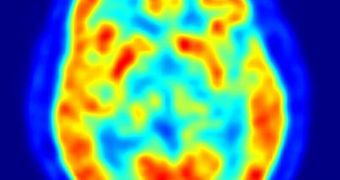Scientists at the Sloan Kettering Institute say that they have recently developed a new method for growing a special type of neurons. They add that these cells could be used to counteract the negative effects of Parkinson's disease on the human brain.
In a new series of experiments, experts develop a method for synthesizing neurons that produce dopamine, a major neurotransmitter in the human brain. The chemical is known to contribute to brain health, as well as to our feelings of well-being, love and happiness.
In Parkinson's patients, dopamine neurons are among the first to go. As such, researchers have been asking themselves for quite some time whether finding a way of mitigating this damage would help reverse the effects this condition causes on the brains of patients.
In order to test this, the group gave a series of lab mice brain lesions similar to those Parkinson's disease causes in the human brain. When the neurons synthesized through the new approach were implanted in the tiny rodents' brains, the damage the researchers caused was nearly entirely erased.
This is a very promising approach to addressing the disorder, SKI investigators believe. One of the most interesting aspects of the study was that the dopamine cells were immediately accepted into the brain. This enabled them to start addressing the existing damage right away.
What this study implies is that a stem-cell-derived therapy may soon be used on patients suffering from this disorder, Technology Review reports. “We finally have a cell that seems to survive and function and a cell source that we can easily scale up,” team leader Lorenz Studer explains.
“That makes us optimistic that this could potentially be used in patients in the future,” adds the SKI researcher, who was also the senior author of the new investigation. He adds that the symptoms of Parkinson's oftentimes include tremor, muscle rigidity, and loss of balance.
What researchers are trying to accomplish is develop a type of therapy that can be used in conjunction with existing drugs. The latter are rather effective nowadays, but their effects can wane in time, leaving the patients predisposed to experiencing a progressive worsening in their situation.
If the initial, beneficial effects of drugs could be augmented by a cell-replacement therapy, then patients would stand a very high chance of getting rid of their condition, and recuperating lost brain function.
Still, the idea is fairly new, which means that some time will pass before a therapy based on it is implemented at a large scale.

 14 DAY TRIAL //
14 DAY TRIAL //